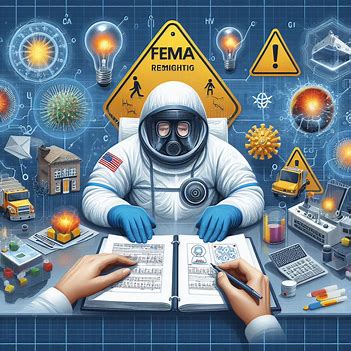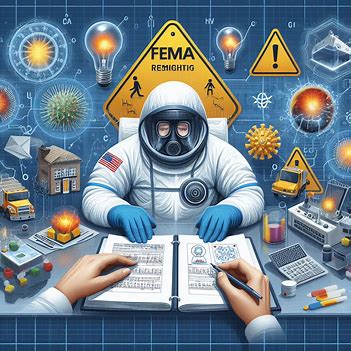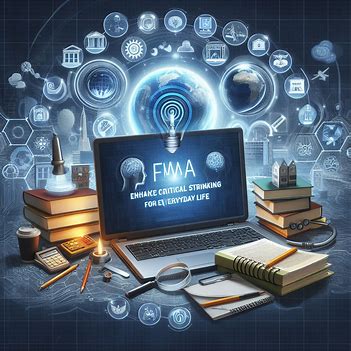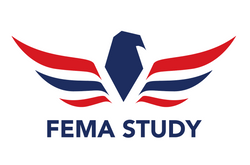
Unveiling the Power of FEMA Test Strategies: Elevating Critical Thinking for Everyday Challenges
Find FEMA Test Answers to Exams HERE

In a world brimming with uncertainties and unexpected events, the ability to think critically and make sound decisions is indispensable. Whether facing a crisis, navigating complex problems, or simply making everyday choices, honing our critical thinking skills is paramount. Surprisingly, one avenue for enhancing these skills lies in mastering FEMA (Federal Emergency Management Agency) test strategies.
FEMA, primarily known for its disaster response efforts, also plays a pivotal role in educating individuals on emergency preparedness through various training programs and certifications. Among these is the FEMA Independent Study program, offering courses covering a broad spectrum of emergency management topics. However, beyond the technical knowledge imparted, mastering FEMA test strategies can serve as a potent tool for nurturing critical thinking abilities applicable to myriad real-life situations.
Understanding FEMA Test Strategies
FEMA tests are not merely assessments of rote memorization but rather assessments of one's ability to comprehend, analyze, and apply information effectively. These tests often present scenarios mirroring real-world emergencies, requiring examinees to assess situations, prioritize actions, and make decisions under pressure. Consequently, mastering FEMA test strategies entails more than just memorizing facts; it involves developing a structured approach to problem-solving and decision-making.
The Nexus Between FEMA Test Strategies and Critical Thinking

At the heart of FEMA test strategies lies the cultivation of critical thinking skills. Here's how mastering these strategies can enhance critical thinking for everyday life:
-
Analytical Thinking:
FEMA tests frequently present complex scenarios that demand careful analysis and evaluation of information. By dissecting these scenarios, test-takers learn to identify key issues, assess risks, and discern potential consequences—an invaluable skill applicable to various real-life situations, from financial decision-making to career planning.
-
Decision-Making Under Pressure:
In emergency situations, split-second decisions can have far-reaching implications. FEMA tests simulate such high-pressure environments, requiring examinees to make quick yet informed decisions. By honing this ability within the controlled setting of a test environment, individuals develop the capacity to remain composed and make rational decisions amidst stressful situations in everyday life.
-
Strategic Planning:
Effective emergency management hinges on strategic planning and resource allocation. Mastering FEMA test strategies entails devising efficient study plans, allocating time wisely, and leveraging resources effectively to maximize success—a skillset transferable to personal and professional endeavors requiring careful planning and resource management.
-
Adaptability and Flexibility:
Emergency scenarios are inherently unpredictable, often necessitating rapid adaptation to changing circumstances. By exposing test-takers to diverse scenarios and varying challenges, FEMA tests foster adaptability and flexibility, enabling individuals to adjust their approaches in response to evolving situations—a crucial skill in navigating the dynamic landscape of everyday life.
Integrating FEMA Test Strategies into Daily Practice

The benefits of mastering FEMA test strategies extend beyond the realm of emergency preparedness. Incorporating these strategies into daily practice can yield tangible improvements in critical thinking skills. Consider the following approaches:
- Scenario-Based Reflection: Regularly reflect on past experiences or hypothetical scenarios, applying the analytical framework employed in FEMA tests to assess decisions made, identify areas for improvement, and refine decision-making processes.
- Structured Problem-Solving: Approach everyday challenges methodically, breaking them down into manageable components, considering potential risks and consequences, and exploring alternative solutions before reaching a decision.
- Continuous Learning: Embrace a mindset of lifelong learning, seeking out opportunities to broaden knowledge, acquire new skills, and expose oneself to diverse perspectives—all of which enrich critical thinking capabilities and enhance adaptability.
Conclusion

Mastering FEMA test strategies transcends the realm of emergency preparedness, serving as a potent catalyst for elevating critical thinking skills essential for navigating the complexities of everyday life. By honing analytical thinking, decision-making under pressure, strategic planning, and adaptability, individuals can empower themselves to confront challenges with clarity, confidence, and resilience. So, let us embrace the lessons gleaned from FEMA test strategies, unlocking the full potential of our critical thinking prowess to thrive in an ever-changing world.
